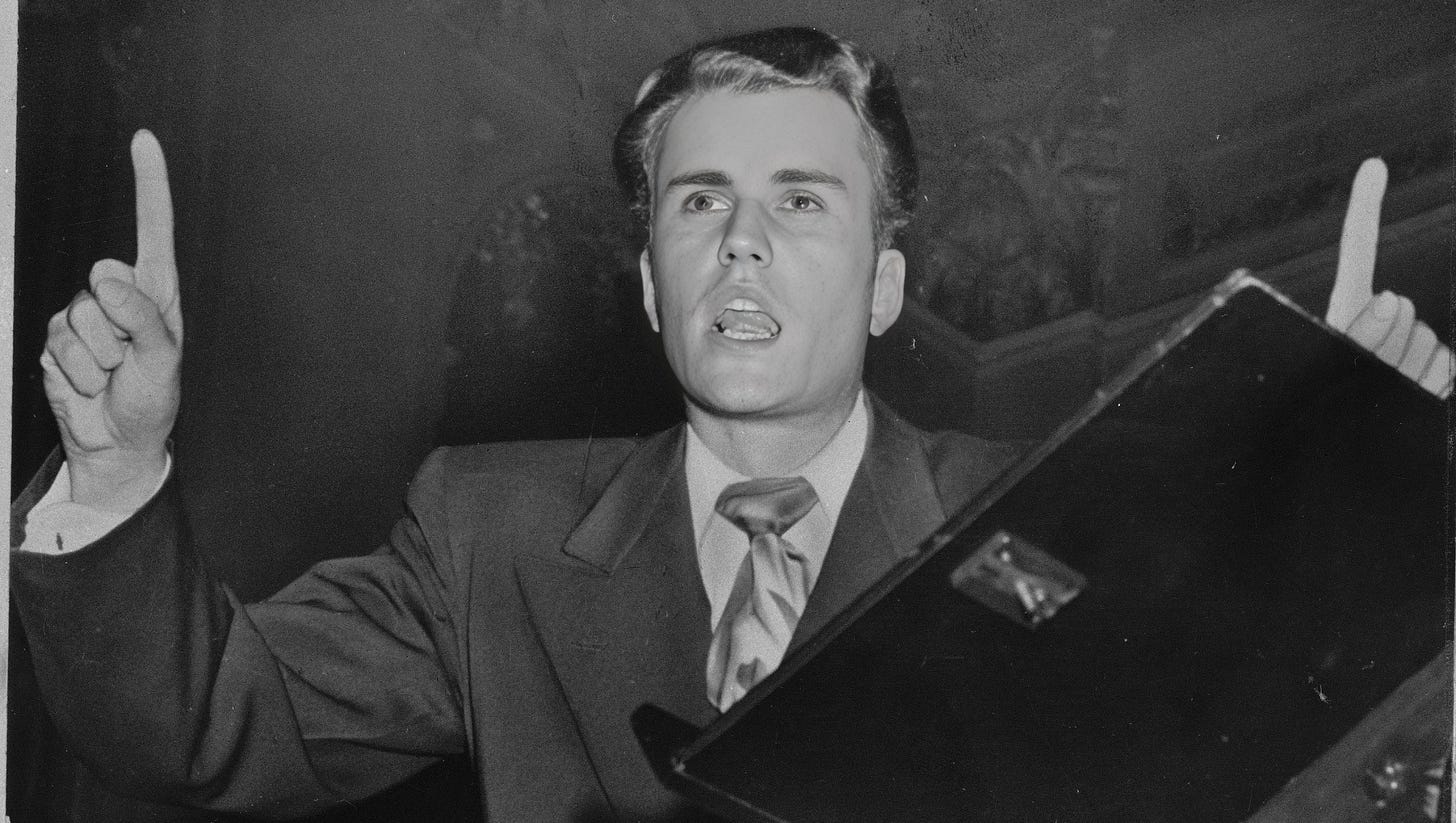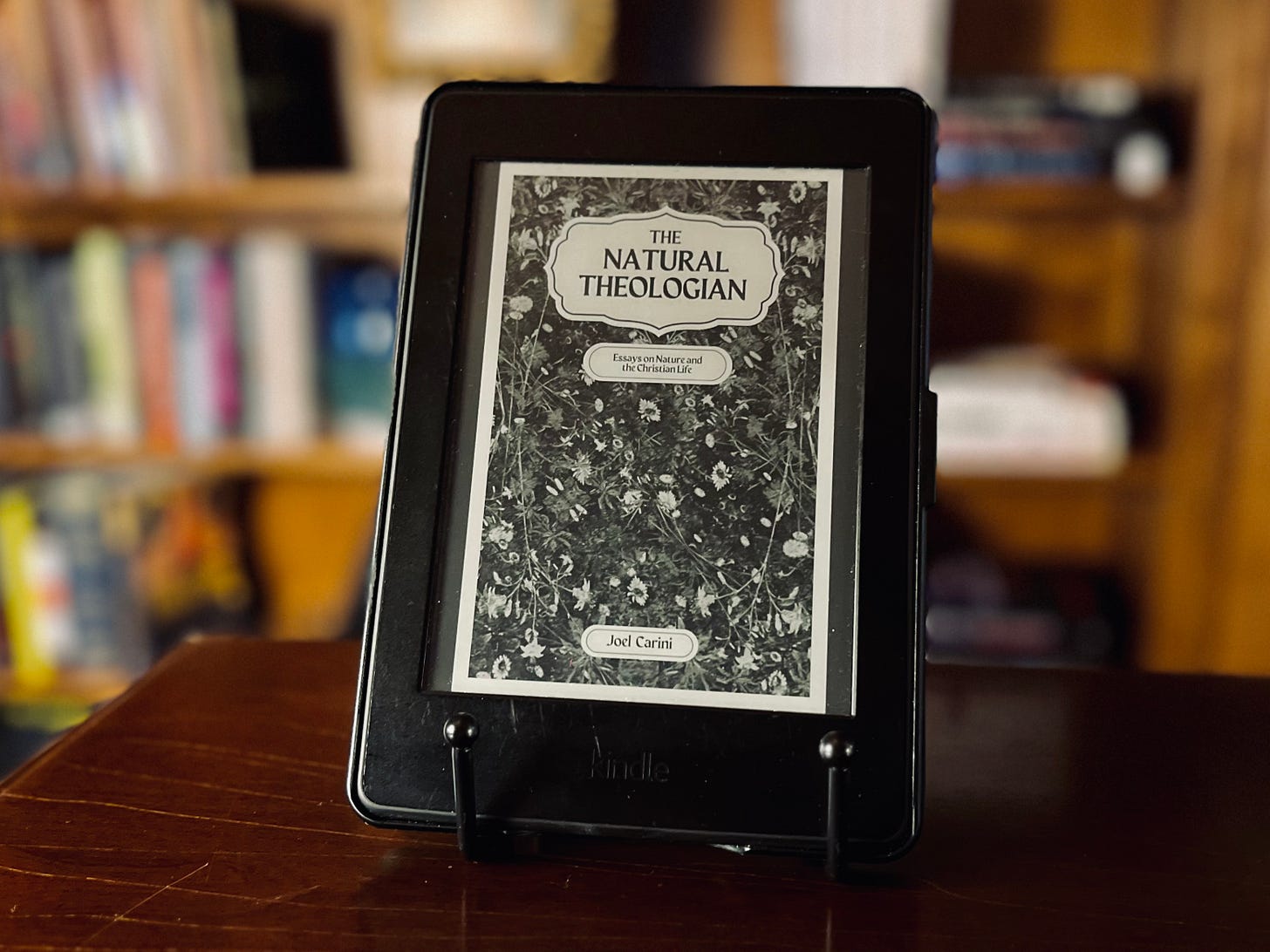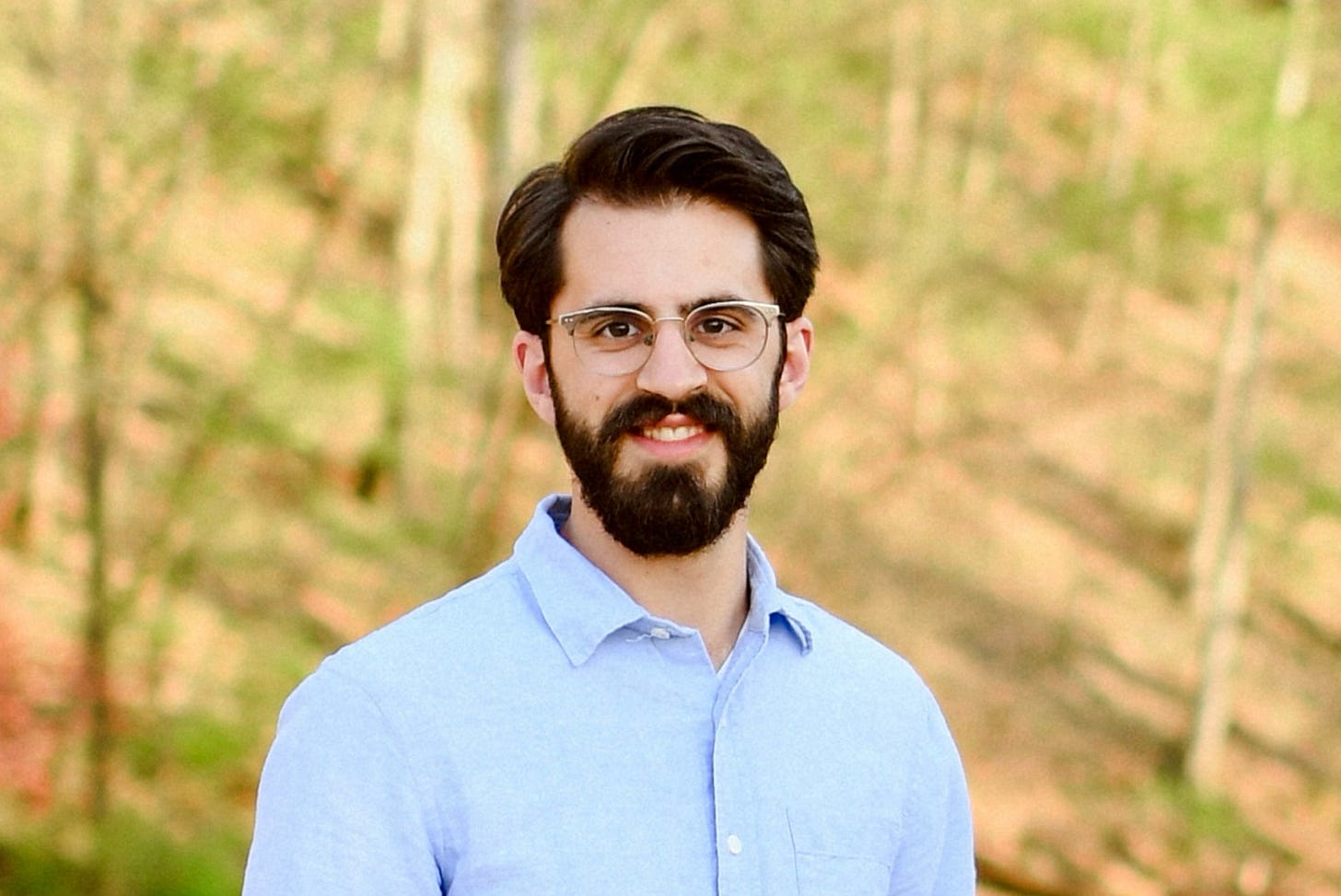Dear reader,
I started The Natural Theologian in January 2023. In the depth of my academic studies of philosophy, The Natural Theologian was borne out of the desire to share the fruits of my studies with integrated Christian thought, bridging the boundary between philosophy and theology.
As I wrote here, my reflections naturally began to home in on a key focus: The role of secular knowledge in Christian thinking. What could Christians learn outside the pages of Scripture? From outside the discipline of theology?
This was largely as a corrective to my training in evangelical biblical theology and presuppositional apologetics. These disciplines cultivate a sense that only biblical knowledge is necessary for theology and the Christian life. Even if they acknowledge the category of natural or general revelation, practitioners of these disciplines tend to conclude that the content of natural revelation is not necessary for the task of theology.
Yet I find the opposite to be the case. Doing theology from the Bible alone repeatedly bottoms out in philosophical differences. The differences, for example, between complementarians and egalitarians are not attributable to quibbles over the Greek word kephalé. Often they are influenced by unspoken philosophical, cultural, and political concerns, which we disguise as purport to argue exegetically. The way to resolve these debates was to add to our exegetical knowledge the fruits of philosophical, sociological, historical, and psychological research and reflection.
Over the course of 2023, my writing at The Natural Theologian covered the theology of common grace, the relationship between Christ and culture, Christian teaching on homosexual desire, realism and postmodernism, intelligent design, and the culture of evangelicalism. That culminated in a volume, The Natural Theologian: Essays on Nature and the Christian Life, available here and here.
Retrospective on 2024: Theology without Ideology
In 2024, my writing took some new directions. An overarching theme of the year was “theology without ideology.” Many say that everyone has an ideology/religion; we just have to be explicit about what ours is. I argued instead that all of us should free ourselves from the intellectual vices of ideology, and that even orthodox Christians could do this. I articulated the philosophy of Christian realism, which frees Christians from Puritanical hang-ups. All action implicates in the messy, real world; no action is pure.
Another theme was politics: I took a step into political philosophy, both articulating the case for those on the right to be religious, and spelling out the theistic argument from the failure of liberalism which has many looking toward faith, if not for its truth, for its utility. I wrote about Jordan Peterson twice, articulating why Christians are wrong to criticize this pragmatist apostle. I took Paul Kingsnorth to task as well for dismissing interest in Christian civilization as contrary to the gospel. I defended Oren Cass’s plea for secular political argumentation on Substack and then in the pages of First Things.
In April, I had the privilege of presenting on equality at a working group of the Princeton Initiative in Catholic Thought. I published that piece here. But I got a greater opportunity to present my thesis when philosopher and firebrand Nathan Cofnas argued that differences in IQ pertain make some people less morally valuable than others. I published my, “Is Human Worth Normally Distributed?” at Aporia magazine, where I believed the ideas would receive the right audience. I also interacted with Richard Hanania’s writing twice, defending social conservatism against his criticisms.
In August, I dipped a toe into the discussions on pronatalism, arguing in Having Kids After the Fall: Toward a Postlapsarian Pronatalism for a pronatalism that recognizes the difficulty of having children and does not blame the childless for their condition. This piece was then republished at Mere Orthodoxy.
In the fall, I refocused on questions of epistemology, even offering a (so far) seven-week course on Theological Epistemology. This served to clarify my own thinking on the subject and is something like to expand on and offer again in the future. This led to my reading and reviewing Simon Kennedy’s Against Worldview, publishing that review at American Reformer. You can also listen to my interview with Simon here.
That interview was the latest episode of a new podcast, The Flâneur and the Philosopher. Together with my friend King Laugh, we opened up our previously private discussions about Christian life and the church to new friends and a public audience. This also spilled over into my fledgling YouTube account, where I also published a couple of monologues, and my 2023 monologue, “Don’t Go to Seminary,” continues to rack up views.
I wrote, recorded, and released two pop-punk tracks under the stage name of Renegade Sage, “Common Ground” and “Nothing Matters.” There’s more where that came from.
I also drafted almost my entire dissertation over the course of 2024. I plan to submit it to my advisor later this month, undergo a couple rounds of editing, with the goal of graduating this year with my Ph.D. in philosophy from Saint Louis University.
Oh, and I and my family moved to another state!
2025 Goal: Ph.D. and Academic Publishing
A top goal this year, of course, is the completion of my Ph.D. as well as being on my way to discerning next steps career-wise.
One of the steps I hope to take is publishing academically. I’d like to publish at least one article in philosophy and one in theology before the year is out. (If it’s easy enough to do, more than that.) In philosophy, I’ll publish a chapter from my dissertation that contains my core argument that the content of thought is not independent of the layout of the world. (You can get a sense of the argument from “Why I’m Against Concepts” or “What Is My Dissertation About?”)
In theology, I’d like to publish an article that is the fruit of my efforts here at The Natural Theologian. I drafted the article last week. So far, it is titled: “Does Sexual Orientation Exist? Implications for Christian Theology.” In the article, I introduce the empirical evidence for the existence of sexual orientation. I reflect philosophically on what sexual orientation is. And I consider how sexual orientation fits into the theological categories of actual and original sin, concupiscence, and misery. These findings challenge many of the standard criticisms of Christians identifying as gay.
Completing academic writing is, generally, more involved and time-intensive. It also requires feedback and rounds of editing. Over the course of this year, I’ll also be learning the ropes of academic publishing generally.
But I think it is important to do. While my writing here reaches you, it is possible for the vast majority of Christians not to encounter it. However, if it is published in a theological journal, the arguments enter the mainstream of theological debate.
As of yet, Side B has few substantive theological defenses. (“Side B” refers to those who argue that Christians may call themselves “gay,” if they are.) Almost all the theology articles published on the subject argue that same-sex attraction and orientation are sin and that Side B and Revoice are leading people astray. That perspective deserves serious pushback.
How You Can Help
If you’d like to see the ideas I publish here reach a wider audience, including an academic one, you can help in a number of ways. Commenting on and interacting with my writing, or shooting me an email are very encouraging to me. Please share my articles with others you think would be interested.
You can also financially support The Natural Theologian. This contributes to the publication on Substack as well as my efforts to send these ideas to the academic mainstream. You get access to my past and future course lectures, as well as to other premium content coming down the line.
In the meantime, thank you for reading The Natural Theologian. I hope it is doing something to equip you to learn from secular sources and to live a Christian life in the secular, natural world.










Most of your specific writings are well over my head. However, I think you are correctly discerning the basic reasons Christians often argue over secondary issues rather than ask more basic questions. For example, as a retired therapist I am constantly told I falsely recommend unbiblical interventions. In most cases, I see the interventions as scriptural because I see the causes of their depression or addiction as being other than disobedience.
I developed a different way of thinking about behavior often thought to be 'sinful disobedience' after reading the theology of Dr. James Kallas who writes that there are three very different 'streams' of theology about behavior we say is wrong.
Kallas traces the difference to different theological systems. In some ways to the modern application of Calvin, Luther, and Wesley. He concludes that all are biblically relevant in our minds and groups who think they must choose only one theory of misbehavior and we can find healing by understanding that approach.
Catholics focus on Guilt not its cause.
Calvinists focus on Bondage.
Wesleyan's and Baptists focus on Bad Choices
I offer this as a way to hint I am with you in searching for ways to more logically and healthily interact with others in ways that deal with foundational differences in discovering where our ideas come from. I think you seem to be on a similar journey at a much higher level. In Counseling all these things collide daily.
Your production rate has been insane!